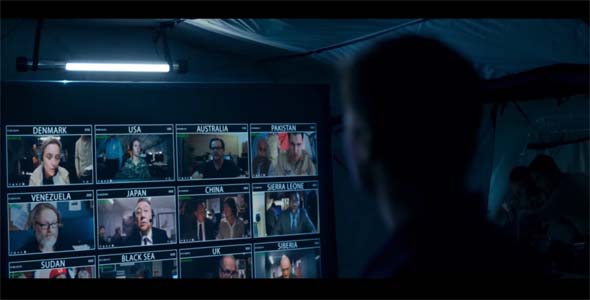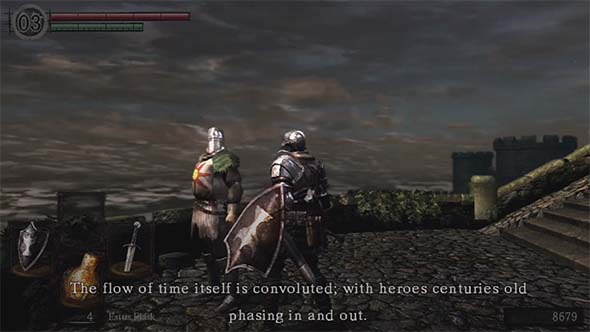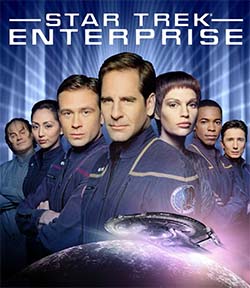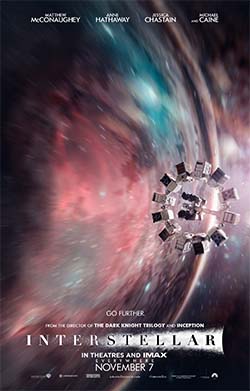Another summer, another onslaught of comic book movies. This year, we're spared the misery of another of Warner's DC Comic movies, so we get two Marvel movies (including the recently-released Infinity War and the soon-to-be-released Ant Man and the Wasp), and we get a sequel to Fox's Deadpool. The first Deadpool was pretty great, even though it wasn't as groundbreaking as it seemed to think it was. Nevertheless, it was thoroughly entertaining, and the sequel follows suit.
I do think that the first movie's humor is executed much better though, as the sequel frequently fell flat for me. That isn't for lack of trying though. Deadpool 2 almost tries too hard. The jokes come fast and relentless. A lot of them fall flat, but the volume of attempts is so high that the audience the audience is chuckling or laughing every couple minutes. It's almost a "Barney Stinson" approach to joke-telling: if you tell enough, at least some of them will work. Then again, it might also be different jokes for different people.
I rarely ever found myself laughing out loud during this movie. I laughed out loud to a few jokes in the first movie, but hardly anything in this one. It was a lot more quietly chuckling to myself or nodding along that "Ah, I get it". At least there weren't quite as many contemporary pop culture references this time around (which means this movie will probably age better than the first one will), as more of the jokes were at the expense of comic book movies and comic books in general. Since I didn't read X-Men too extensively, a lot of it probably just went over my head.
I only found myself laughing at a small fraction of the jokes, including the extended X-Force gag.
Again, Deadpool takes a lot of shots at the studio, complaining once again about the lower budget of the movie and the lack of any recognizable X-Men. He asks if Cable is from the DC Universe because Cable is so dark and brooding, and he takes several other shots at Batman v Superman and Justice League. He also takes a couple shots at Marvel Studios, including referring to Cable as Thanos.
Is the crappy quality of the CGI villain intentional? Is that supposed to be a joke? If so, does that justify the dated CG that was used?
Cable and Deadpool play off each other really well.
It's hard to tell if other signs of uninspired writing are deliberate jokes, or just examples of uninspired writing, especially since Deadpool quips once or twice about the movie's lazy writing. For example, does it really make sense that Deadpool and Cable are trying to stop Firefist from going on a killing spree, even though Deadpool and Cable kill literally everyone in their path to do so? Wouldn't that just reinforce in Firefist's mind that killing is acceptable? [More]
1d222fa4-8ba2-4dee-8919-c8dd6300d008|0|.0
Tags:Deadpool, X-Men, 20th Century Fox, Ryan Reynolds, Josh Brolin, Zazie Beetz, Morena Baccarin, Cable, Colossus, Negasonic Teenage Warhead, Domino, Firefist, Juggernaut, X-Force, R-rating, violence, mutant, Marvel, Marvel Comics, comic book, Wolverine, Logan, time travel, fourth wall

I did it again. I waited until the last minute to see a hard science fiction film until it was just about to leave theaters, even though I complain about the conventional Hollywood logic that hard science fiction doesn't sell tickets. In my defense though, I was preparing for a trip out of the country when this movie released. So my excuse this time is far better than my excuse for missing opening weekend of The Martian. And once again, this film's 94% on Rotten Tomatoes (as of the time of this writing) and its exceeding box office projections (coming in third behind a Marvel comic book movie and a children's movie) seems to vindicate that Hollywood can still make high-concept, hard science fiction films, that people will go see them, that people will understand them, and that those people will like them.
Arrival is as hard as hard science fiction gets. Think Contact; think 2001: A Space Odyssey; think the Star Trek TNG episode "Darmok". Arrival is all about communication, and it offers an interesting exploration of how language influences the way that we think, and how our thoughts are filtered through the language that we speak. The entire movie is about the efforts to communicate with the aliens, while human beings progressively become incapable of actually communicating with one another. There's no real villain, exactly one explosion, and the threat of China and Russia starting a war with the aliens on the other side of the globe is a distant, but tangible threat. This film is slow and methodical, much like the efforts to teach a new language to someone, and it makes absolutely sure that the audience will be able to follow along with what is going on.
Moreso than our attempts to communicate with aliens, this film is about our ability (or inability) to communicate with each other - at every level of society. From individual relationships, to professional relationships, to political relationships, to international diplomatic relationships, and even the relationship between the media and the public.

Arrival is more about our inability to communicate with each other, than our inability to communicate with aliens.
It's difficult for me to say anything more about this movie without absolutely, completely spoiling everything. Suffice to say, the high-concept science fiction stuff is very well handled. This movie earns some comparisons to Interstellar, but is far more intelligent and manages to not be hokey at all. Read on if you want spoilers... [More]
023940cc-6fc7-4a26-a273-727d7283c24d|0|.0
Tags:Arrival, Amy Adams, Jeremy Renner, science fiction, grief, extraterrestrial, language, communication, relationships, Slaughterhouse-Five, Kurt Vonnegut, time travel, box office, Hollywood

Perhaps I just have a bias against parallel dimensions (as evidenced from my interpretation of Silent Hill's otherworld), but I want to take some time to clear up what might be a mis-conception in the conventional wisdom interpretation behind Dark Souls' multiplayer summoning mechanics. Dark Souls co-op is not necessarily based on parallel dimensions, as many players seem to assume. It might, in fact, be intended to be an abstraction of some kind of time travel. I've noticed that many players online already seem to refer to the multiplayer mechanic of these games in terms of time travel, but I've yet to see any wikis, lore videos, or blogs that seem to explain multiplayer as a time travel mechanic.
I want to preface this analysis by stating that I'm not asserting that the following explanation is the absolute, 100% correct interpretation of the mechanic. Individual players may disagree based on their own reading of the game, and I'm personally somewhat conflicted on the topic myself. I merely want to propose this as a possible alternative to the defacto "parallel worlds" interpretation. I'm going to point out in-game evidence that supports the idea that Dark Souls' multiplayer is based on time travel, but there is also in-game evidence and mechanical evidence that flat-out contradicts that interpretation. I will address those contradictions as well. So that being said, please keep an open mind, and enjoy the read!
The summoning mechanic
There are two games in the series that are not part of the Dark Souls franchise, and which have different in-game explanations and rules for the same multiplayer features (more or less). Those games are, of course, Demon's Souls and Bloodborne. Both have asynchronous multiplayer and summoning mechanics that work similarly to Dark Souls.
Demon's Souls summoning operates under the idea of summoning the spirit of a fellow adventurer who's soul is trapped in the Nexus. This is why you must be in soul form in order to be summoned. Bloodborne's beckoning operates [similarly] under the principle of manifesting hunters out of dreams (which seems to operate under a similar cyclical paradigm to Dark Souls, but I'm not 100% sure). In Dark Souls, you aren't necessarily summoning ghosts (as you do in Demon's Souls), since the undead in Dark Souls are more akin to zombies than ghosts. Also, characters in Dark Souls can leave summon signs whether they are hollowed (dead) or in human form (revived), which is a significant alteration from Demon's Souls. A lore reason for summoning is provided in Dark Souls:

Solaire explains to us how summoning works:
"We are amidst strange beings, in a strange land.
The flow of time itself is convoluted; with heroes centuries old phasing in and out.
The very fabric wavers, and relations shift and obscure.
There's no telling how much longer your world and mine will remain in contact.
But, use this, to summon one another as spirits, cross the gaps between worlds, and engage in jolly co-operation!"
Both Solaire's dialogue, and the White Sign Soapstone (along with other online play items) make references to other "worlds", which leads to many jumping to the conclusion that each player's game is a sort of parallel universe within the Dark Souls lore. However, this may not necessarily be correct. Both Solaire's dialogue and the soapstone also provide explanations for these worlds: "time is convoluted | distorted". This seems to be the explanation for what is meant by "worlds", and it seems that Solaire and the in-game descriptions may be using "time" and "world" interchangeably (could it be a translation / localization issue?). The phrasing in the white soapstone's description joins "the flow of time is distorted", and "the White Soapstone allows undead to assist one another", into a single, compound sentence, which definitely implies that the two phrases (and ideas) are linked.

"Online play item. Leave summon sign.
Be summoned to another world as a phantom through your sign, and defeat the area boss to acquire humanity.
In Lordran, the flow of time is distorted, and the White Sign Soapstone allows Undead to assist one another"
The dialogue of Saulden (the Crestfallen Warrior of Dark Souls II) is even more explicit... [More]
b4b5ccdc-fe67-4add-901b-a41077204778|4|5.0
Tags:Dark Souls, Dark Souls II, Dark Souls III, lore, summon, phantom, multiplayer, From Software, time travel, paradox, grandfather paradox, predestination paradox, parallel dimension, soapstone, Solaire, Crestfallen
Warrior, Crestfallen Saulden, Lautrec, Ringfinger Leonard, Anri of Astora, Sirris of the Sunless Realms, Black Iron Tarkus, Iron Golem, Anor Londo, invasion, Demon's Souls, Bloodborne

Star Trek: Enterprise is a very divisive topic among Trekkers / Trekkies. Personally, I'm not a big fan. It was a perfectly adequate space adventure TV show, but just never quite worked as hard science fiction for me, let alone as "Star Trek". There were certainly some stand-out good episodes. The haunted space station of "Dead Stop" and the mirror universe antics of "In a Mirror, Darkly" being among my favorites. The annoying thing is that the show made several mistakes at very fundamental levels before it even got off the ground. I could have lived with the show being a prequel, but the efforts to make the show seem both futuristic to the viewing audience, but also less advanced than the (then 40-year-old) original series put the show in an awkward juxtaposition with established series continuity. The hackneyed time travel meta-plot certainly didn't help.
"Juxtaposed" is an excellent way of describing Enterprise as a whole. It's a show that simultaneously seemed ashamed of its "Star Trek" name (remember, it premiered with the title "Enterprise", and "Star Trek" was only stapled back on in later seasons), while also indulging in needless - and sometimes cringe-worthy - fan service (such as the appearance of the Borg, Ferengi, and the entire episode "In A Mirror, Darkly"). It wanted to distance itself from established Trek tropes, but also brought back many of the same technologies, concepts, and character archetypes (simply renaming many of them). It set itself at the cusp of development of advanced science fiction technologies, but completely waffled when it came to telling hard science fiction stories about those technologies. It wanted to be simultaneously a prequel and a sequel via its contrived time travel premise. It was this lack of confidence and true vision that really killed this show.
The science of future technology
The show made the mistake of trying to present a Star Trek setting that was less technologically advanced, but still went ahead and gave the crew access to stand-ins for all the established trek technologies. They tried to make the Enterprise itself feel more like a contemporary submarine with its confined spaces, but it never really felt different. There was "hull polarization" instead of shields, and "phase cannons" instead of phasers. Different names, but same basic concepts that were used in exactly the same manner. The crew didn't start the show using more contemporary-seeming projectile weapons - not even a futuristic projectile weapon like a rail gun - before transitioning to purely energy-based weapons. The Enterprise didn't have to be equipped with any kind of futuristic chaffe in order to misdirect hostile targeting scanners, nor did it use point-defense to destroy incoming missiles.
"Phase pistols" and "polarized hull" were just lazy stand-ins for phasers and shields.
The only pieces of tech that the show really held off on (and were relevant to narrative) were the universal translator and transporters. The translator was rarely an issue since Hoshi was practically a Babel Fish. The transporter was there, but it was not trusted to reliably transport living things - even though it had been verified as safe by the beginning of the first episode and was successfully used in that episode. So for most of the show's run, the crew used shuttle craft for away missions, but the transporter was always there just waiting to act as a deus ex machina to get the crew out of a sticky situation (which, of course, happened on multiple occasions - including the premiere).
The fact that these technologies were already in place made the show feel too similar to other Trek series, even though it desperately wanted to feel distinct. But it also prevented the writers from exploring some of the more interesting issues inherent to the development of these technologies... [More]
da55494b-5a7b-4e89-b139-99295c419ad0|2|3.5
Tags:Star Trek, Star Trek: Enterprise, Enterprise, mirror universe, Terran Empire, Jonathan Archer, Borg, Ferengi, Xindi, time travel, xenophobia, science fiction, technology, transporter, phaser, universal translator, Heisenberg Compensators, artificial gravity, centrifugal force, space, allegory, Zefram Cochrane, Star Trek: First Contact, first contact

Interstellar is a rare hard sci-fi movie.
There has been a sad dearth of hard science fiction movies in recent memory. While comic book and alien invasion movies and the like have been proliferating (and some of them have been very good), there haven't been as many movies that have been willing to take science fiction subject matter seriously. The only mainstream releases that I can think of off the top of my head are District Nine, Inception, and Gravity, neither of which really wowed me. District Nine was alright, but I felt that its racism allegory fell flat since the aliens themselves considered the majority of their species to be mindless automatons. Inception was a fun ride, but nowhere near as clever or complicated as people made it out to be. And Gravity wasn't really "science fiction"; more like just "space drama" disaster porn.
That leaves the indie movie Moon and the surprisingly good Rise of the Planet of the Apes and Dawn of the Planet of the Apes as the only really good examples of high-brow science fiction that I can think of - and maybe Edge of Tomorrow can count as "medium-brow".
That's why I've been very excited about Christopher Nolan's new movie, Interstellar. It had all the trappings of a modern-day 2001: A Space Odyssey, which (confusing psychedelic ending aside - read the book!) is one of the best hard science fiction movies ever made. Interstellar definitely lived up to this expectation, but it's a much gloomier and more depressing epic than Arthur Clark and Stanley Kubrick's masterpiece.
The space travel plot is, in fact, almost identical to 2001. A crew must travel in hypersleep in an experimental spacecraft to investigate an anomaly around Saturn (the original 2001 book placed the monolith in orbit around Saturn, but it was changed to Jupiter for the film). The sleeping crew is even overseen by intelligent robots. The rising action has conspiratorial undertones, and the climax dives deep into metaphysical fringe science.
Interstellar [LEFT] is very similar to Arthur Clark and Stanley Kubrick's 2001: a Space Odyssey [RIGHT]
in its detail-oriented depiction of space travel.
A lot of the science in the first half of the movie is solid, and it's actually integral to the narrative and drama between the characters. The second half takes a lot more creative license for the sake of plot. There are significant issues with relativity with regard to a black hole, metaphysical stuff about a "ghost", and some ham-fisted mumbo jumbo about the power of love transcending time and space. But despite some silly science, there's a very real possibility that audiences might leave the theater with a better understanding and appreciation of relativity.
So Interstellar definitely earns its comparisons to 2001... [More]
35e64e9b-a1a8-4a07-b7ac-d718da273664|1|5.0
Tags:Interstellar, Christopher Nolan, science fiction, space, wormhole, black hole, Saturn, climate change, predestination paradox, time travel, relativity, 2001: a Space Odyssey
|

| 12 | | | | | | | 60 | | 11 | | | | | | | 55 | | 10 | | | | | | | 50 | | 09 | | | | | | | 45 | | 08 | | | | | | | 40 | | 07 | | | | | | | 35 | | 06 | | | | | | | 30 | | 05 | | | | | | | 25 | | 04 | | | | | | | 20 | | 03 | | | | | | | 15 | | 02 | | | | | | | 10 | | 01 | | | | | | | 05 |
|